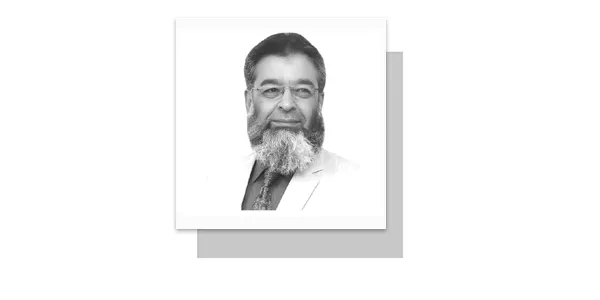THROUGHOUT history, nations have endured wars, occupations and forced migrations. However, the idea of an entire population being compelled to leave its homeland and settle elsewhere remains extraordinary and unsettling. Such a proposition raises profound ethical, legal and political questions. Forced migration is not just displacement; it is a violation of sovereignty and, in many cases, outright usurpation. Forced migration, a tragic historical phenomenon, continues to challenge humanity on legal and humanitarian fronts. Nations have been compelled to leave their homelands due to war, persecution, or environmental calamities.
These displacements leave deep marks, reminding us of the fragility of peace and the struggle for justice. The question of whether a country or its people can be forcibly removed is not theoretical but a pressing issue tied to international law and morality. The United Nations, as the principal international body maintaining global peace, upholds the sovereignty of nations and the rights of people to live in their homeland. The UN Charter forbids the forceful acquisition of territory and displacement of populations. The principle of self-determination in international law grants people the right to govern themselves without external coercion. The Universal Declaration of Human Rights (UDHR), adopted in 1948, affirms individuals’ rights to live freely in their homeland without persecution or expulsion. Any attempt to remove an entire population would be a grave human rights violation, contradicting international laws protecting against ethnic cleansing and genocide.
History is replete with examples of forced migration and its devastating consequences. The Palestinian displacement, beginning in 1948 during the Arab-Israeli War, remains one of the most enduring refugee crises. Hundreds of thousands of Palestinians were expelled, creating a diaspora yearning for a return to their ancestral lands. Similarly, the 1994 Rwandan Genocide forced millions of Tutsis to flee their homes amidst horrific violence. More recently, the Syrian Civil War, which began in 2011, displaced over 12 million people, with 6.5 million forced to flee the country. These examples underscore the dire consequences of forced migration: loss of livelihoods, cultural erosion, and generations of refugees struggling to rebuild their lives.
To address such crises, the United Nations has established frameworks for displaced populations. The 1951 UN Refugee Convention defines refugee rights and state obligations, prohibiting forced returns to persecution zones under the principle of non-refoulement. The Sustainable Development Goals (SDGs) include targets to reduce inequalities and address displacement. Goal 10 emphasizes the importance of safe, orderly, and regular migration, reflecting the international community’s commitment to dignity and human rights. The United Nations High Commissioner for Refugees (UNHCR) plays a crucial role in humanitarian assistance and advocacy, ensuring forced migration is tackled legally and humanely.
The issue of Palestine remains central in this discourse. For over seven decades, Palestinians have faced occupation, displacement, and systemic identity erasure. The idea of relocating them is not only morally indefensible but also legally impermissible. Palestinians have a historical and legal right to their land, recognized by numerous UN resolutions and legal instruments. Any attempt to evict them and resettle them elsewhere would not be a peaceful solution but a continuation of historical injustices. It would equate to de facto annexation, a policy consistently condemned by the global community. The Fourth Geneva Convention prohibits the transfer of occupied populations, reinforcing the illegality of such actions.
Would the world permit such a usurpation? History suggests that international responses are often dictated by political interests rather than moral principles. While international law is clear, enforcement is selective and depends on powerful nations’ will. The “might is right” doctrine, where power dictates a nation’s fate, has persisted from colonial occupations to modern-day conflicts. The analogy of the “stick and buffalo” formula is relevant: those with power impose rules, regardless of legality or justice. In the case of Palestine, global power dynamics skew the equation, with major Western nations shaping the discourse.
The unwavering support for Israel despite repeated international law violations highlights this disparity. If justice prevailed, international law would be enforced uniformly, preventing any nation from forcibly displacing another. One cannot ignore the historical context in which Jewish people, having suffered expulsions and persecution—particularly during Nazi Germany—now stands as the dominant force displacing another people. The irony is profound and tragic. Historical suffering should have fostered a commitment to justice and human rights, yet history repeats itself, with Palestinians as victims. This is not merely historical vengeance but a political reality driven by power, geopolitical interests, and ideological narratives.
Ultimately, forced migration—whether of Palestinians or any other group—violates human rights and international law. The global response must be guided by justice, compassion, and the rule of law. Diplomatic solutions, grounded in dialogue and mutual respect, offer the best path to resolving displacement-inducing conflicts. Violence and coercion have no place in a world aspiring for peace. The United Nations and the international community must prevent such acts and ensure displaced populations receive protection and opportunities to rebuild their lives. History has revealed the devastating effects of forced displacement. We must learn from these lessons and create a world where no one is compelled to leave their homeland against their will. The principles enshrined in the UDHR and international treaties must guide us, reminding us that human dignity and rights are inviolable. Only through a collective commitment to justice and humanity can we prevent forced migration’s tragedies and build a more equitable, peaceful world.
The writer is contributing columnist based in Islamabad.
(ememiqbal68@gmail.com)










